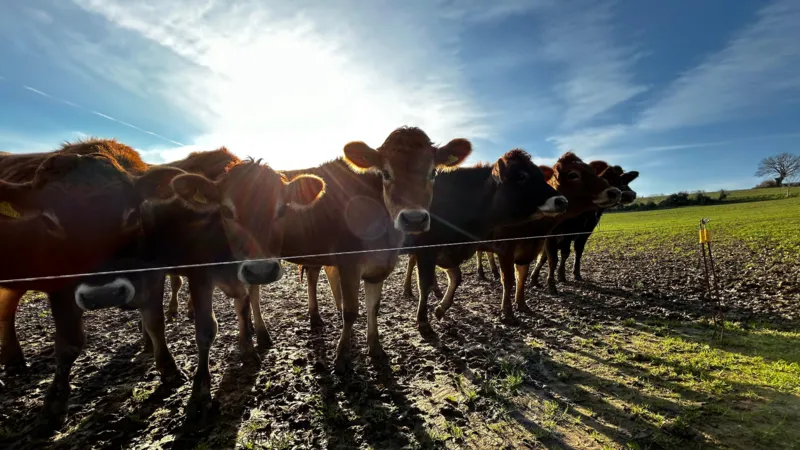Northern Ireland (NI) has imposed stringent restrictions on the import of livestock and related products from Germany due to a recent outbreak of foot-and-mouth disease. This measure, aimed at protecting local agriculture and preventing the spread of the highly contagious viral disease, underscores the critical importance of biosecurity for the region’s farming industry.
Foot-and-mouth disease primarily affects cloven-hoofed animals such as cattle, sheep, pigs, and goats. While not harmful to humans, it can devastate livestock populations, leading to significant economic losses for farmers and the wider agricultural sector. In response to confirmed cases in Germany, authorities in Northern Ireland are taking proactive steps to safeguard the region’s animal health and trade.
The Department of Agriculture, Environment and Rural Affairs (DAERA) announced the restrictions after Germany confirmed the presence of the disease in its livestock. Imports of live animals, meat products, dairy, and animal feed from affected areas in Germany will be halted until further notice. This move aligns with international standards and protocols designed to control outbreaks and minimize cross-border risks.
A DAERA spokesperson emphasized the importance of rapid action, stating, “Protecting our livestock industry is of paramount importance. We are working closely with veterinary experts and monitoring the situation in Germany. These temporary restrictions are necessary to ensure the safety and sustainability of our agricultural sector.”
Northern Ireland’s farming community has welcomed the precautionary measures, recognizing the potential threat posed by the outbreak. Farmers’ unions and industry representatives expressed support for the swift action, emphasizing the importance of maintaining vigilance and collaboration among stakeholders. They noted that biosecurity measures play a critical role in preserving the integrity of the industry and preventing economic hardship for farmers.
In addition to the import restrictions, DAERA is urging local farmers and agricultural businesses to heighten their biosecurity practices. This includes disinfecting equipment, controlling farm access, and monitoring livestock for any signs of illness. Farmers are also encouraged to report any suspected cases of foot-and-mouth disease immediately to veterinary authorities.
The outbreak in Germany has prompted heightened surveillance across Europe, with neighboring countries implementing similar restrictions and preventive measures. The European Commission is working closely with German authorities to contain the outbreak and assess its impact on regional trade and agriculture.
While the restrictions may pose challenges for trade between Northern Ireland and Germany, they are seen as a necessary step to prevent a wider outbreak. Protecting the health of livestock and maintaining consumer confidence in agricultural products remain top priorities for authorities and farmers alike.
The situation remains under close observation, with further updates expected as the response unfolds. In the meantime, Northern Ireland’s commitment to safeguarding its agricultural sector demonstrates a proactive approach to tackling potential threats and ensuring long-term resilience.

 Fashion4 months ago
Fashion4 months ago
 Sports5 months ago
Sports5 months ago
 Fashion4 months ago
Fashion4 months ago
 Learning3 months ago
Learning3 months ago
 News3 months ago
News3 months ago
 News4 months ago
News4 months ago
 Technology5 months ago
Technology5 months ago
 Hot News2 months ago
Hot News2 months ago









